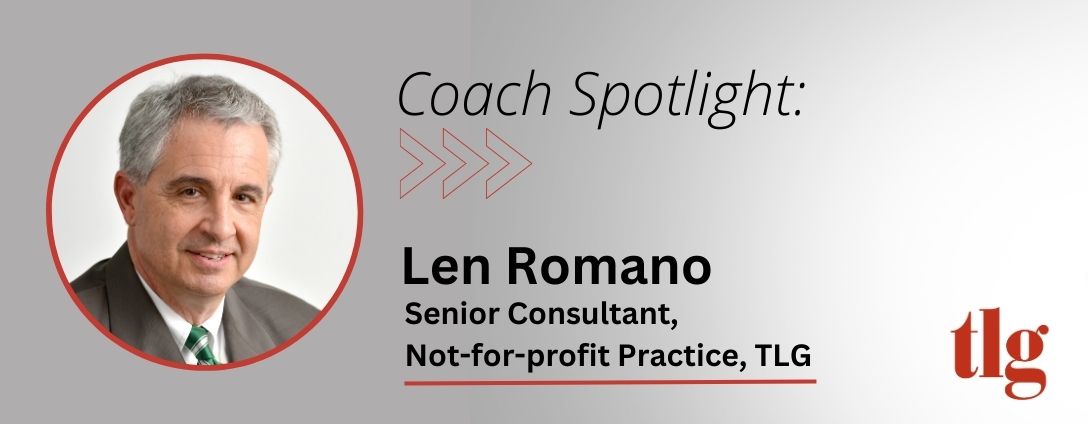
By Jonathan Palombo
Marketing ManagerLen Romano is a nonprofit expert who brings over 30+ years of experience as a former CEO in all types of settings to his work as a Trusted Advisor and Non-profit Consulting Coach. We recently sat down with Len to explore his non-profit background and discuss non-profit leadership, change management, mentorship, and more!
Q: What are some of the key differences you’ve seen in non-profit leadership as opposed to for-profit leadership?
A common misconception is that a non-profit organization is very different from a for-profit one. Essentially the only difference is its tax filing status/requirements and, this is the most important difference – who benefits from the profits of the enterprise. And yes, a non-profit organization can have a net profit. So, who benefits? Unlike a for-profit organization where the shareholders or owners personally benefit from any profit, the community is the beneficiary. How? Any profit is used to further the mission and reinvest in programming, depreciation, equipment, and subsidized services that otherwise would not (or could not) be provided by a for-profit organization. So, any profit generated by the organization does not benefit the assets of board members or individuals.
In terms of leadership, just like a for-profit organization, an entrepreneurial spirit is necessary to take the organization to the next level.
Q: What advice would you have for someone considering a career in the non-profit sector?
The first step would be to volunteer for a non-profit board to understand the relationship/roles that exist between board members and staff. As part of the volunteer board experience, get familiar with fundraising campaigns, especially if you are considering joining an organization that has limited earned revenue potential. In addition, important skills to develop include networking/public relations skills and learning how to market the invisible (services) by linking the organization to quantifiable outcomes (vs. outputs) that make a difference in people’s lives.
Q: Share a time you experienced rapid change in a leadership role. How did you overcome it?
I was always attracted to leading troubled organizations. There was an organization that I joined as the CEO which was at a crossroads of a major decision about its future survival. It couldn’t continue financially on its present course and under its current mode of operating. To save the organization and its 15 locations, it was necessary to implement a product line structure that was dramatically different from its decentralized way of operating. This was a “new direction” (I don’t use the word “change”) that involved a major staffing decision to replace many of the executives (who were generalists) with program area specialists.
Q: Tell us about your experience in mentorship and what it means to be a certified SCORE Business Mentor.
Mentoring others is one of the most important things you can do to help develop aspiring leaders and entrepreneurs. I set aside a portion of what I do as an advisor to work on pro bono projects to give back what knowledge and experience I have gained throughout my career. Volunteering for SCORE is a way to be a direct and effective catalyst for small businesses and job creation. It just feels good to help others!
Q: What has been the highlight of your career in non-profit?
Most non-profit organizations are in the people business – serving communities to enable and strengthen those in need. But I would say that the greatest highlight of my career is the development of those who worked directly for me – over 17 are now CEOs of other organizations.
Q: In your opinion, what are the top three leadership skills someone in the non-profit sector should have?
Thinking about what it takes to be successful, I would say 1.) an entrepreneurial spirit, 2.) people skills, and 3.) strategic thinking.

